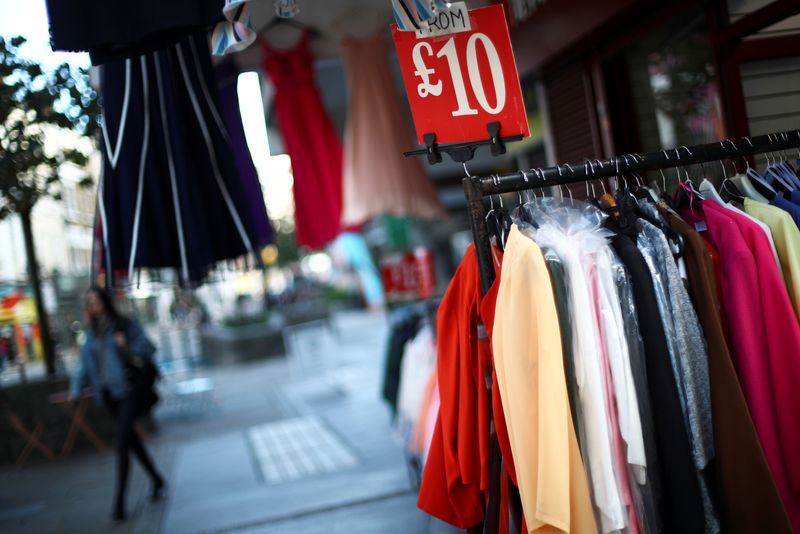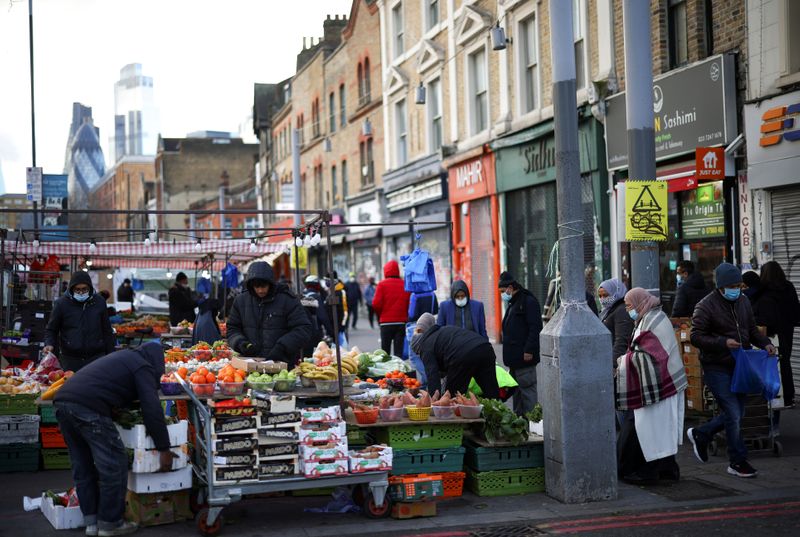By David Milliken and Andy Bruce
LONDON (Reuters) - British inflation unexpectedly fell last month, reflecting the biggest annual drop in clothing prices since 2009 and cheaper second-hand cars, toys and computer games, though most economists see sharper price rises ahead.
The annual rate of consumer price inflation dropped to 0.4% in February from 0.7% in January, the Office for National Statistics said, in contrast to economists' average forecast in a Reuters poll of a rise to 0.8%.
"The impact of the pandemic has disrupted standard seasonal patterns," ONS Deputy National Statistician Jonathan Athow said. "A fall in clothing prices helped to ease inflation in February, traditionally a month where we would see these prices rise."
Sterling weakened slightly against the U.S. dollar after the figures came out.
The Bank of England and others expect inflation to rise sharply back towards the BoE's 2% target in the first half of this year, reflecting higher oil prices, increases in regulated household energy bills and other one-off effects.
"From April we'll also see the headline rate of inflation leap on energy prices, partly because we'll no longer be comparing petrol prices to pre-pandemic levels, but also because the household energy price cap will rise to 9%," ING economist James Smith said.
Few economists expect the rise in inflation - which may include a small overshoot of its 2% target - to prompt the British central bank to begin raising interest rates.
Unemployment is forecast to rise later this year when government job support measures end, putting downward pressure on wages and prices for the next year or two.
Clothing and footwear prices fell between January and February for the first time since 2007 and are 5.7% lower than a year before, the biggest annual decline since November 2009, reflecting a widespread drop in demand due to the pandemic.
Price falls were mostly for women's clothes and shoes. Normally prices steadily rise with the launch of new spring and summer ranges after the January sales.
But high-street clothing retailers were shut across Britain in February due to lockdown restrictions that have closed all non-essential stores.
Children's toys such as dolls and scooters, as well as computer games - where prices fluctuate significantly - were also cheaper, the ONS said.
Prices for second-hand cars, which rose last year as people avoided public transport during the pandemic, fell by 1.8%.

But petrol prices rose by 2.9% and factories' raw materials costs - which tend to feed through into consumer prices later - were 2.6% higher than the year before in February.
